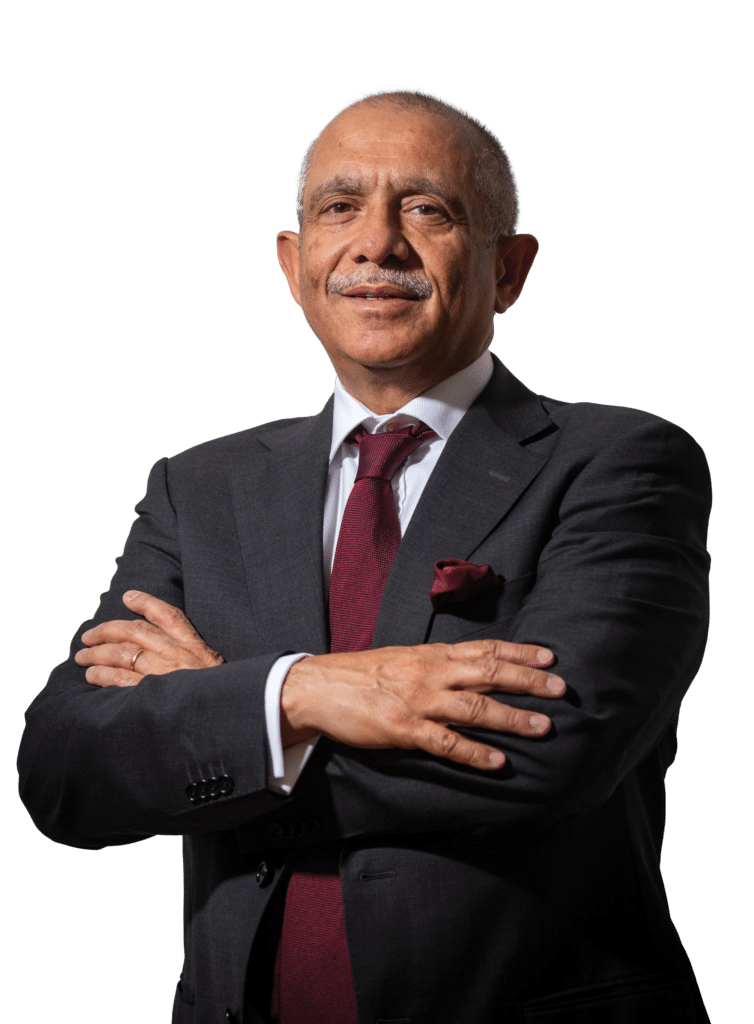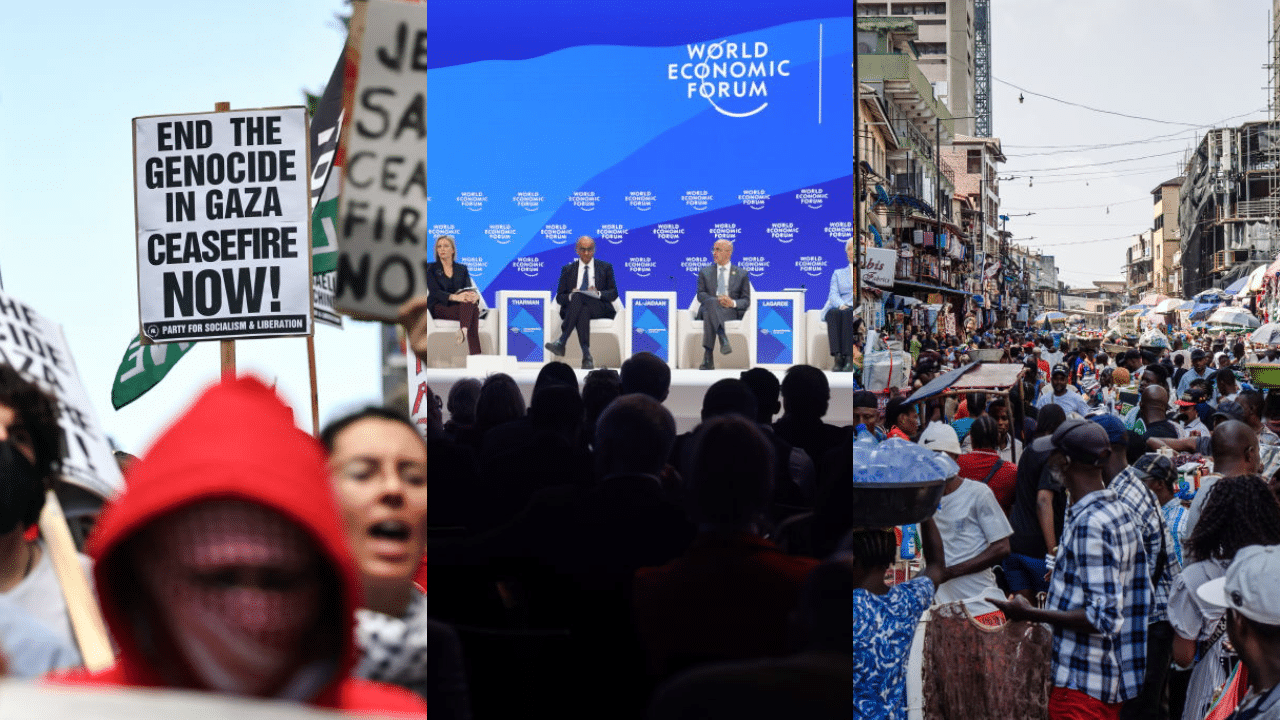Feedback from the Davos meetings of the World Economic Forum (WEF) has always been useful. Historically, the discussions with world leaders, both political and corporate, provide insight into what is expected in the year ahead. The post-event mood after the meetings was generally vibrant but 2024 was a departure from the past. Is it because WEF is losing its luster or because world leaders did not want to face the tough questions that were expected at Davos? Geopolitically, it was a disaster, as several world leaders were missing from the January 2024 WEF meetings; France’s Emmanuel Macron was the only leader from the G7 countries. Joe Biden, Xi Jinping, Vladimir Putin, Rishi Sunak and many other leaders were conspicuous by their absence. Ukrainian President Volodymyr Zelensky was present for a special address. The Russians were missing and so were their oligarch parties that are part of the pomp and show during Davos.

Africa has been gaining in prominence at the WEF meetings and delegations from South Africa, Rwanda, Ghana and a few other countries continue to be torchbearers for the continent. Some inter-esting debates on technology, AI and the challenges of the future were thought-provoking this year but to a large part, there was nothing to write home about. In 2018, Dr Akinwumi Adesina, President of the African Development Bank, along with several other multilaterals, founded the Africa Investment Forum as an alternative to WEF Davos. The vision was to move away from talk and politics to a platform for action. For African countries, this platform is far more valuable than the money that gets spent in participating in Davos. The outcomes are measurable and are focused on Africa and our leaders need to focus on answers relating to the African continent and not be bystanders to the deafening silence at a global platform.
The unanswered and embarrassing questions before world leaders include, but are not limited to, the wars in Ukraine and Gaza, and climate change. The issue of Ukraine will remain unsolved as long as the West continues to fuel and fight a proxy war against Russia. Although, the United States’ (U.S.) Repub-lican party has reportedly applied some brakes to the funding of the war, there is relentless hysteria being stirred regarding Russia’s aggression and intent to start similar campaigns along other parts of its border. Finland and Sweden are the most recent additions to the North Atlantic Treaty Organization (NATO) which now has 32 members.
We can only speculate that despite any adjectives that have been used to describe Putin, one thing that he most certainly is not, is a fool who would even, in all his arrogance, think that Russia could take on the collective might of NATO in a conventional war. Looking purely at data that is in the public domain, Russia has 40% of the ground troops, 20% of aircraft and 28% of the naval power of NATO. This is a disincentive for Russia to go to war with any NATO country. Where Russia has a distinct advantage is in nuclear capability and this should not be taken lightly. Putin has made his intention clear; if NATO gets involved or pushes his hand, he has limited choices.
When Ukraine began its quest for membership to NATO, Russia warned them not to do so for reasons that are known to the whole world. None of the superpowers want their cold war enemies setting up bases near their borders. What would the U.S. do if Russia were to set up a base in Mexico? The Cuban missile crisis of 1962 almost brought about a nuclear war when the U.S. found out about the Soviet Union’s plans to establish nuclear weapons in Cuba.
Loading...
History has taught us many lessons and self-preservation is an adequate motivation for nations to act in self-interest. The only way fighting between neighbors can come to an end is if the two (with the help of affected and interested neighbors) sit down to talk. This can only happen if NATO countries take a step back to stop fueling the war through money and weapons, stop expand- ing NATO and ask Russia to stop any further aggression. By now, Putin would also have understood that continuing this conflict is not sustainable, even for Russia.
The discussion on Ukraine is not complete without acknowl- edging the growing conflicts of interest. Other than in supplying weapons, Western countries, mainly the U.S., have significant economic interests in Ukraine, most of all in securing agricultural capacity for all times to come. Several major multinational corporations owned and controlled by some of the largest U.S. financial institutions are alleged to be the beneficiaries of privatization and concessions in Ukraine. Unfortunately, as the media continues to report on the horrific consequences of war, there is silence on the conflict of economic interest that will continue to catalyze the war.
We are also facing a major crisis in Gaza. It has been six months since the attack carried out by Hamas against Israel on October 7 2023. I do not believe that there is any human being with a soul who will condone the killing and suffering of innocent women and children at the scale that is going on in the war between Israel and Hamas. This time around, the U.S. is supporting Israel and has time and again blocked any move made at the United Nations Security Council calling for a stop to the bloodshed. What is going on in Gaza will have far greater consequences for the world than the war in Ukraine. The world is likely to get more and more polarized and instead of progressing forward and making the world a better place, there is going to be more hate and regression.
In the last two years, these two conflicts have cost the world far more than any other recent crisis. Some Pentagon sources have quoted that the direct cost of the war for Russia in Ukraine, to date, has been more than $210 billion. This does not include the economic loss to the world in the form of price escalation, the slowing down of economic activity and the setting up of duplicate and expensive supply chains. Financial weekly newspaper Barron’s has quoted Organisation for Economic Co-operation and Development (OECD) sources projecting the global cost of lost output in excess of $2.8 trillion. WEF sources quote figures for the destruction in Ukraine to be between $400 billion and $1 trillion. The German online platform Statista has projected that it will conservatively cost about $410 billion to rebuild Ukraine. These are numbers that for the common man mean very little, other than point to an alarming fact that people in Ukraine will stay below poverty levels for a long, long time. Imagine if this money was poured into developing countries to help them with infrastructure, education, healthcare, energy transformation, agriculture, water and food security.
Agriculture and food production in Africa needs to be catalyzed on a war footing. There is a lot of land in Africa that is currently been bought and/or being leased by multinationals with a view to creating clusters to export agricultural products. There needs to be scrutiny by the African Union and African multilaterals on how to manage the needs of African nations. Why export food when there are so many nations in Africa that continue to import food products? We need compelling incentives for Africans and African-owned companies to grow the agricultural base in Africa.
My favorite activity after the end of a long day at work has always been to watch local and international news networks and catch up on current affairs. In the last few months, my interest has largely been in catching up with elections in different parts of the world. With more than two billion people going to the ballot in over 50 countries this year, a lot of interesting discussions are going to take place on the future of many countries and on geopolitics in general.
Talking about elections; the U.S. elections have always been of interest. It took me a long time to somewhat understand the elections system. It was always interesting to watch the primaries, Super Tuesdays and town hall debates: a seemingly well-structured election system to finally select leading candidates for the Republicans and Democrats who then battle in a final contest for a winner-takes-all. This year has been with mixed emotions but mainly disappointment. I was 13 years old when the Watergate scandal broke in 1972.
We used to hear the news on the radio for updates on the case leading to Richard Nixon’s resignation; the only president in U.S. history to resign, although three others have been formally impeached.
These blemishes aside, one has looked up to the leadership in the U.S.; Barack Obama was my most recent favorite. We are not to judge who Americans choose to lead them but for a country with over 340 million people, I most certainly think that there is enough talent to bring in younger, smarter and less-conflicted individuals to lead the most powerful country in the world.
The sitcoms will continue for the rest of 2024 but sadly, the fate of the world in many ways will rest on the decisions made by Americans this year.
I am ending this piece on a sad note; it’s a personal loss. My business partner of over 20 years, Zafar Siddiqi, passed away at the end of February. We take a lot of things in life for granted; life is one of them. We just believe that what happens to others will not happen to us. Death pauses us when it happens close to home. Each of us rely on familiar faces (personally and professionally) when we have moments of triumph or periods of uncertainty. Coming home after his burial, I was left with the sad real- ity that the face I was so accustomed to turn towards, for over two decades, will only smile from a picture in my office. We both have been through some of the biggest challenges setting up our media and education businesses; one thing we mutually agreed on was to never give up. We put our faith, our blood, sweat and tears into these dreams and built them one brick and one day at a time. Today, we have the best teams and people around us, but the loss is of someone who shared my pain each day of this journey. Rest in peace, dear Zafar.
Loading...
